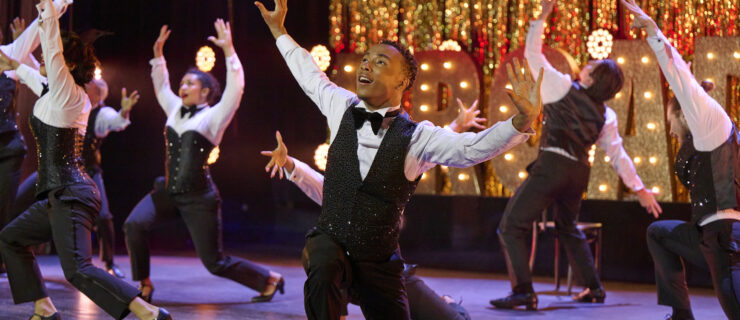Problem Parents: How to Deal When Mom and Dad Aren't Giving You the Dance Support You Need
For 16-year-old Amanda*, dance is everything: her passion, her escape from the daily grind, and her career goal. Her parents see things differently. “I have siblings who are active in sports,” Amanda says, “and my parents would rather I play soccer or basketball. They don’t see dance as something I can earn a stable living from in the future. They often tell me I should just quit.”
Some parents aren’t able to, don’t know how to, or choose not to give you the kind of support you need to thrive in the studio. And when your parents are adding stress to your life, rather than alleviating it, there’s a lot at stake. “Dancers who don’t have the support of their parents might struggle with self-doubt,” says Dr. Linda Hamilton, a former dancer with New York City Ballet and a clinical psychologist specializing in the performing arts, “while those whose parents are too involved can crack under the pressure.” Whether your parents aren’t there when you need them or they’re always there, practically smothering you, try these tips to improve your situation.
Talk to Your Teacher
A trusted teacher can be your first line of defense against problem parents. For instance, your teacher can offer guidance you aren’t getting at home. “My teacher and I talk a lot about my options once I graduate high school,” Amanda says.
When Maggie*, who now dances with a regional ballet company, was cut off financially by her unsupportive parents two years ago, a teacher encouraged her to keep auditioning and helped her plan for her future. “I don’t think I’d still be dancing if it weren’t for that teacher,” Maggie says. Although she had to work three jobs to save up money for her first year as a member of the studio company, Maggie knew she had someone who believed in her, and that support kept her going.
Are your parents on the opposite end of the spectrum, driving you nuts with their constant presence? If you let a teacher know, he or she may be able to intervene. For instance, “during performance weeks, I can give a hovering parent a job to do, like costumes or props, that’s somewhere different than where their child will be,” says a studio owner in Tennessee. Nudges like these may secure you some much-needed room to breathe.
Fill Your Parents In
There’s a chance your parents don’t even realize that their behavior or attitude is bothering you. “Most parents want the best for their child, but they may need some direction,” explains Hamilton. Whether you need Mom and Dad to show more interest in your dance training or wish they would back off a little so you can make decisions on your own, an open dialogue can be the first step toward a healthier relationship.
 Illustration by Daniella Ferretti
Illustration by Daniella Ferretti
Nervous that an honest conversation will turn into a painful confrontation? This is another area where your instructor can step in. The Tennessee studio owner sometimes schedules conferences where everyone can sit down together. Or, Hamilton says, “if you have a relative in the arts world, that person might be helpful.”
Look for the Whys
Understanding where your parents are coming from can make it easier to get your point of view across. For example, if your mom and dad think of dance classes as a waste of time compared to academics, you could try listing the benefits: “Dance builds problem-solving skills and a strong work ethic,” Hamilton says. “It’s associated with better grades in school.” If your parents worry that dance isn’t a viable career path, or are set on higher education, “you could mention that dancers today do go to college,” Hamilton says. “Even full-time professionals can work toward a degree.”
If the lack of support stems from a lack of knowledge about the art form, think of fun ways to educate your parents about dance. If it comes down to money—dance training can get expensive—you could investigate scholarship or work-study options to ease some of the burden. In short, you might have to put in some legwork to get unsupportive parents on the same page.
Over-involved parents, on the other hand, tend to care too much. Perhaps they’re trying to look out for you, but are stifling or embarrassing you instead. Or maybe they’re getting their own need for accomplishment met through your successes—a phenomenon Hamilton calls “achievement by proxy.”
Because a helicopter parent is heavily invested, telling them that they’re hovering can lead to serious hurt feelings. When discussing the situation, “start with what you appreciate,” Hamilton says. “Say something like, ‘It’s so nice that you support me. I couldn’t have gotten where I am without you.’ Then you can transition into what you need from them: space.”
The Bottom Line
“If you have something you’re passionate about,” Maggie says, “you should pursue it, even if there are obstacles.” Find a way to express your needs, and build a wider support system in the event that your parents aren’t willing to compromise. Then, do your best to put your focus back where it belongs: on your training.
* name changed
A version of this story appeared in the April 2018 issue of
Dance Spirit with the title “Problem Parents.”




